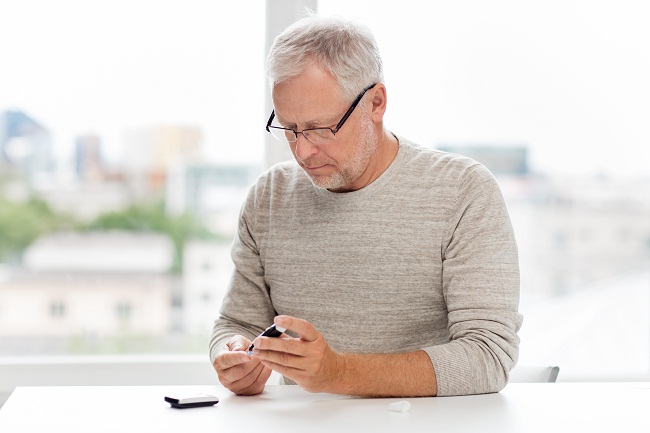It sure takes some effort ensuring that your elderly dad or mom stays healthy and shares the happy moments of life with you. While you may take all the pains to take them to the hospital for regular health checks, its home health care that really bothers you.
Finding the best diabetes treatment at home can be difficult as this involves having multiple agencies like a diabetes doctor, dietician, and someone who can give advice at the right time.
Yet, you need all these agencies as diabetes in the elderly is different from those who are middle-aged.
Diabetes in the elderly
- Hypoglycemia is quite common in older people
- Having had diabetes for some time, elderly are more at a risk of heart problems and other diabetes complications
- Their postprandial blood sugar levels tend to increase
- Diabetes in the elderly causes weight loss, painful peripheral neuropathy, and depression
- Diabetes in elderly also increases the risk of accidental hypothermia (a medical emergency)
Apart from diabetes, elderly are prone to physical disability, cognitive impairment, depression, and other conditions like urinary incontinence.
Increased risk of low sugar levels in the elderly
In the elderly, metabolism starts slowing down and consequently all other systems too, which include the brain. The body is unable to assimilate energy produced by the body.
A subtle change occurs when there is a loss of taste buds. Lack of taste buds provide a distaste for food leading to smaller quantities of nutrition. Lack of nutrition results in very low blood sugar levels since the body has absorbed all the insufficient energy present and still needs more. Consequently, blood sugar levels drop down drastically. Critically low levels can lead to seizures, stroke and even death.
How to prevent low sugar levels in the elderly
Monitor
It’s important to monitor blood sugar levels at home with a glucometer. In case you need regular updates of your parent’s sugar levels, opt for a smartphone glucometer.
Other advantages of a smartphone glucometer is that it’s always connected to a care team. This means they can see your parent’s sugar levels with trends. This allows them to predict a low sugar episode and prevent it.
Diet
Having a healthy, balanced meal in small portions and higher frequency rather than a big meal once or twice a day reduces hypoglycemia chances. It is easier to digest and use the energy generated.
A customized diabetes diet plan can ensure that your parent gets the right proportions of all nutrients and provides diabetes control.
Physical Activity
It is important to get some exercise in order to maintain mobility. However, it is also important to check blood sugar levels before and after the activity. Encourage your parent to carry a smartphone glucometer so that you are also alerted.
Adherence to medications
It’s quite possible that your parent might skip a dose of diabetes medication. Forgetfulness is common among the elderly. That is why you need to set some kind of reminders so that they never skip any medication. Mobile notifications, and regular alarms are some options for reminders.
Regular checkups
Checking blood sugar levels, blood pressure, cholesterol levels and other vitals is a very important part while taking care of your parent.
If you are looking for a complete diabetes treatment at home: Enquire Now











